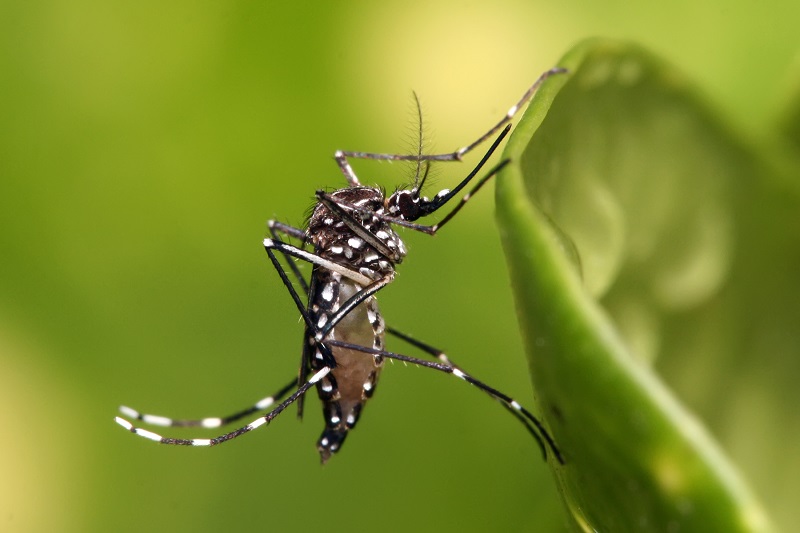
An aedes aegypti mosquito. Image: Muhammad Mahdi Karim
An aedes aegypti mosquito. Image: Muhammad Mahdi Karim
Two years ago, as Brazil was preparing to host the Olympic Games, they were hit with a virus epidemic with no known cure. It had already been spreading through other continents including Africa, Asia and Pacific. The World Health Organization declared Zika a “public health emergency of international concern”. The emergency was lifted in November 2016, but many countries are still reporting cases of the virus. Zika isn’t a deadly virus and most of the time, the fever resolves on its own in two to seven days. But it’s the aftermath that can be the big problem, especially for pregnant women. So let’s take a closer look at Zika.
What are the symptoms?
Most people who are infected with the Zika virus have no or few symptoms. Otherwise the most common signs are fever, rash, conjunctivitis, muscle and joint pain, and headache. Unfortunately these symptoms are the similar to a range of other viruses including dengue and chikungunya fever.
Zika virus infections have been strongly associated with Guillain–Barré syndrome (GBS), which is a rapid onset of muscle weakness caused by the immune system damaging the peripheral nervous system, leading to paralysis. Although being associated with it, it is difficult to definitively identify Zika virus as the cause of GBS.
Zika and pregnancy
The Zika virus can spread from mother to baby during pregnancy and possibly cause birth defects, most notably microcephaly. Microcephaly is a medical condition in which the brain does not develop properly resulting in a smaller than normal head. Often people with the disorder have an intellectual disability, poor motor function, poor speech, abnormal facial features, seizures and dwarfism. The full range of birth defects caused by infection during pregnancy is not known, but current research suggests that up to 42 per cent of infected pregnant women have seen abnormalities in live births.
There’s currently no evidence to suggest that women who aren’t pregnant and contract the Zika virus will have children with birth defects in the future. One study has shown that the Zika virus could have fertility impacts on men but the study was conducted with mice and hasn’t been associated with any such consequences in humans.
How do you catch Zika?
The Zika virus is transmitted by Aedes aegypti mosquitoes; the same type of mosquito that carries dengue fever, yellow fever and chikungunya virus. It can also be sexually transmitted from females to males. A blood or urine test can diagnose a Zika infection.
Can you catch Zika in Australia?
Most areas of Australia do not have the Aedes aegypti mosquito that spreads the virus, however it is found in parts of Queensland and in the Torres Strait Islands. Therefore, in most parts of Australia, there is almost no risk of Zika virus being spread by mosquitoes. Currently, all cases of Zika virus diagnosed in Australia were caught overseas. No cases of locally-acquired Zika virus have been reported in Queensland and Zika is not known to be present in local mosquitoes.
How can you avoid Zika?
There is currently no vaccine for Zika virus infection. Prevention relies on avoiding being bitten by mosquitoes while in a Zika affected country. Safe sex practices are also important in preventing sexual transmission. Avoid travelling to areas where Zika is currently spreading, especially if you are pregnant or planning a pregnancy in the near future. If you do travel to an area where Zika is present you should do what you can to avoid being bitten by mosquitos. This includes wearing long clothing, wearing insect repellent and sleep in a screened in room or use a bed net.
How do you treat Zika?
At the moment there is no specific treatment for Zika other than resting and keeping fluids up. Pain killers for muscle joint pain or anti-inflammatory drugs for fever can also be used to treat symptoms.
What new research is being done to protect Australia and the world from another Zika outbreak?
Animal trials to develop vaccines against Zika infection are currently underway. We conducted a survey of the ability of local Australian mosquitoes to carry and transmit Zika if it arrives in Australia. We found that the risk of local mosquitoes transmitting Zika is very low.
We’re currently exploring alternative strategies to either reduce Aedes mosquito population using Wolbachia (a natural bacteria present in up to 60 per cent of insect species that can help to reduce the transmission of these viruses to people) or using genetic techniques to reduce the ability of mosquitoes to transmit the virus.


We’re going viral!
We’re heading to Vivid Sydney to give you a peek under the microscope at beautiful and dangerous viruses.